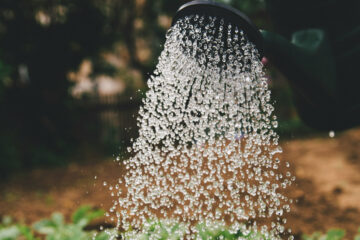Maintaining a healthy and thriving garden requires more than just watering and sunlight. One of the biggest challenges gardeners face is keeping pests at bay. While there are plenty of chemical pesticides available on the market, many gardeners are turning to natural and organic pest control methods to protect their plants and the environment. In this article, we will explore various organic ways to control pests in your garden without resorting to harmful chemicals.
The Benefits of Natural Pest Control
Organic pest control methods offer several advantages over chemical pesticides. Firstly, they are safer for the environment, wildlife, and beneficial insects such as bees and butterflies. Chemical pesticides can often kill off these important pollinators, disrupting the delicate balance of the ecosystem. Secondly, natural pest control methods are generally safer for humans and pets, reducing the risk of exposure to toxic substances.
Furthermore, organic pest control methods can help build a more resilient and sustainable garden ecosystem. By focusing on improving soil health, promoting biodiversity, and fostering natural predators, you can create a more robust and self-regulating environment that is less vulnerable to pest infestations in the long run.
Companion Planting
Companion planting is a traditional gardening technique that involves planting different species of plants in close proximity to one another to take advantage of their mutual benefits. Some plants, such as marigolds, garlic, and basil, are known for their pest-repelling properties. For example, marigolds contain compounds that repel nematodes, while garlic can deter aphids and other pests.
By strategically planting these pest-repelling plants alongside your vegetables or flowers, you can create a more hostile environment for pests and reduce the risk of infestations. Additionally, companion planting can help improve soil health, attract beneficial insects, and enhance the overall biodiversity of your garden.
Natural Predators
Encouraging natural predators is another effective way to control pests in your garden. Ladybugs, lacewings, praying mantises, and birds are all examples of beneficial insects that feed on common garden pests such as aphids, caterpillars, and mites. By creating a welcoming habitat for these natural predators, you can harness the power of biological pest control and reduce the need for chemical interventions.
You can attract beneficial insects to your garden by planting a diverse range of native plants, providing shelter and nesting sites, and avoiding the use of pesticides that can harm them. By maintaining a healthy ecosystem that supports a variety of wildlife, you can establish a natural balance that keeps pest populations in check.
Homemade Remedies
For gardeners looking to tackle specific pest problems, there are a variety of homemade remedies that can be used as natural alternatives to chemical pesticides. For example, a simple mixture of water and dish soap can be an effective way to control aphids on plants. Similarly, a solution of garlic, onion, and cayenne pepper can be used to deter pests like slugs and snails.
Other homemade remedies include neem oil, which is derived from the neem tree and is effective against a wide range of insects, and diatomaceous earth, a natural powder that can help control pests such as ants, beetles, and earwigs. These homemade remedies are safe, affordable, and easy to make, making them a popular choice for eco-conscious gardeners.
Cultural Practices
In addition to companion planting, natural predators, and homemade remedies, there are several cultural practices that can help prevent pest infestations in your garden. Proper watering and fertilization can help increase the overall health and resilience of your plants, making them less susceptible to pests and diseases.
Regularly inspecting your plants for signs of pest damage and taking action at the first sign of trouble can prevent minor infestations from becoming major problems. Removing damaged or diseased plant parts, practicing crop rotation, and maintaining good garden hygiene can also help minimize pest pressure and promote a healthy growing environment.
Conclusion
Protecting your garden from pests without resorting to chemical pesticides is not only better for the environment, but it can also lead to healthier and more sustainable plants. By incorporating natural pest control methods such as companion planting, natural predators, homemade remedies, and cultural practices into your gardening routine, you can create a thriving ecosystem that is more resilient to pests and diseases.
While it may require a bit more time and effort than simply reaching for a bottle of chemical pesticide, the long-term benefits of organic pest control far outweigh the temporary convenience of synthetic solutions. By working in harmony with nature and embracing organic gardening principles, you can create a beautiful and productive garden that is free from harmful chemicals and full of life.
Keep on top of your gardening with our free online journal
Our free online tool allows you to organise your ideas and garden plans and help you be as efficient as possible in the garden.
Sign up now

